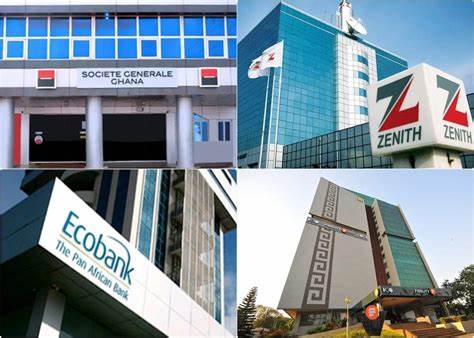The banking industry is not doing much in lending to the private sector and consumers to stimulate spending and growth of the economy, post covid-19, Banking Consultant, Dr. Richmond Atuahene has disclosed.
The Banking Sector Development Report for the first two months of this year showed that investments, largely government securities dominated the assets mix of banks, compared to lending which has reduced considerably.
Dr. Atuahene told Joy Business the asset mix of banks do not augur well for the economic recovery of the country, following the impact of covid-19.
“Depending on which area you’re looking at; if you’re looking at the banking sector - from the investment point of view - investing in government securities, then you can say that the banking sector is being prudent”, he pointed out.
“However, if you look at the credit to the private sector, we are nowhere near making the transformation agenda or to recover, post covid-19. So, it’s either government will have to reduce its borrowing domestically to enable the banks to free credit to support the private sector…what we mean by the crowding out”, he said.
“Currently there is a crowding out; which basically means there’s no credit anymore for private sector development and that’s not good generally for the economy of the country”, he further noted.
Banks assets in investments increased to 44%
Investments continued to dominate the assets mix as its share increased significantly from 36.3% in February 2020 to 44.7% in February 2021, reflecting the banks’ increasing appetite for less risky assets, the March 2021 Banking Sector Development report noted.
The share of loans and advances (net) however declined to 27.2%, from 31.5% in the previous year on account of the slowdown in credit growth.
The share of “Cash and Due from Banks” also declined during the period to 19.9%, from 24.2%, due in part to the reduction in the primary reserve requirement by 2 percentage points in March 2020, one of the regulatory measures to boost liquidity and encourage lending to critical sectors of the economy and also support sectors badly hit by the pandemic.
Non-earning assets (fixed assets and other assets), however, recorded a marginal uptick to 8.2%, from 8.0%.
Latest Stories
-
2024 WAFCON: Ghana drawn against defending champions South Africa in Group C
8 mins -
Photos from DW-JoyNews street debate on ‘galamsey’
54 mins -
Mimmy Yeboah: Blending heritage with global sophistication, confidence redefined through couture
1 hour -
Akufo-Addo commissions 97-km Tema-Mpakadan railway line
2 hours -
Majority requests recall of Parliament
2 hours -
Kanzlsperger and Professor Quartey support WAFA with medical Donation
2 hours -
Gideon Boako donates 10 industrial sewing machines to Yamfo Technical Institute
2 hours -
‘Golden Boy’ Abdul Karim Razak honored at WAFU-B general assembly
2 hours -
Buipewura Jinapor secures Vice Presidential position in National House of Chiefs with record votes
3 hours -
2024 election: I want results to come out like ‘milk and honey’ – Toobu
3 hours -
Ghana’s Henry Bukari hands over chairmanship of ECOWAS Brown Card Council of Bureaux
3 hours -
Residents of Dome-Kwabenya on edge ahead of December elections
3 hours -
Moffy drops new single ‘Wo’, blending culture and modernity
3 hours -
Don’t bring soldiers to polling stations – Martin Kpebu
4 hours -
Ogyeahohuo Yaw Gyebi II retained as President of National House of Chiefs
4 hours

